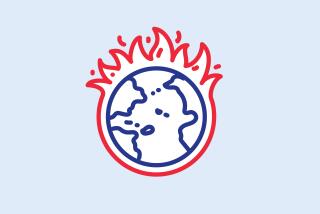What a cigarette tax should pay for
- Share via
Aside from the fact that many Californians love to dump on smokers, there’s a good reason for a cigarette tax to be popular in this state: The taxes reduce smoking rates. Even the opponents of the dollar-a-pack tax on the June ballot say so. And that, of course, is why major tobacco companies are spending some $20 million (so far) to stop Proposition 29.
Proponents point out that for a state that’s ahead of the pack (sorry, couldn’t resist) when it comes to laws that restrict when and where smokers can light up, California has relatively low tobacco taxes at 87 cents a pack. The price of a pack here is about $5.75; in New York state, it’s more than $9, and in New York City, which adds its own levy, it’s more than $10.
The question, though, is whether voters will be happy with how the money is spent -- most of it, half a billion dollars a year to start with -- to fund medical research on cancer, heart disease, pulmonary problems and the like. Practically nobody’s against research, but voters might find it a little strange that a state that can’t keep its teachers, that hikes fees continually on college students and still can’t offer them the courses they need, that cuts back on child care and healthcare for poor children, would start up a new agency to hand out hundreds of millions of dollars a year for research. (The federal government spends more than $8 billion a year on research for these diseases and conditions.)
Supporters of Proposition 29 say that voters want to see a strong relationship between a special tax and how it’s spent. Cigarettes cause cancer, heart disease and lung problems, so it makes sense to use the tax to find out more about those diseases. To paraphrase “Thre Mikado,” whose “object all sublime” was to “let the punishment fit the crime,” the idea is that the object must be to let the benefit fit the tax.
Is that your viewpoint? Or, assuming voters are interested in approving a cigarette tax, should the money be used to relieve some of the ongoing budget misery? Or is there a use that accomplishes both?
ALSO:
How smart is $1 billion for a smartphone app?
The Angeles National Forest’s stubborn rebirth
More to Read
A cure for the common opinion
Get thought-provoking perspectives with our weekly newsletter.
You may occasionally receive promotional content from the Los Angeles Times.







